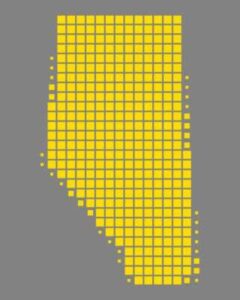Whether you have lost your job, gone for a vacation, or are struggling with severe health conditions, there could be many reasons that make you fall short on payments even after doing everything to adjust your budget. So, in that case, here are the consequences and solutions if you’re unable to pay your monthly mortgage payments.
Missed Mortgage Payment- Here Are the Consequences
Missing mortgage payments can be a serious issue. Here are some consequences you may have to face if you can’t pay your mortgage on time.
Poor Credit Score
Missing mortgage balance payments can significantly negatively impact your credit score. Most mortgage lenders record mortgage payments to Equifax, and TransUnion, two of Canada’s major credit bureaus.
Even a single missed mortgage payment will be recorded on your credit report. Mortgagees are often coded with the letter “M” and a numeric value. “1” indicates that your mortgage is fully paid; “2” indicates current, “3” indicates 60 to 89 days past due; and so on, all the way up to “9,” which denotes that your mortgage debt has been written off, sent to a collection agency, or that you have filed for bankruptcy.
Late Fees & Penalties
You will get phone calls and collection letters from your mortgage company if you have a late or missed payment. You may expect them to tack on late fines and penalties in addition to your normal payment amounys.
These are the immediate effects of not paying your mortgage on time. Although these effects are irritating and you might want to avoid them, don’t do that. Being proactive and working to keep your finances above water will benefit you in the long run.
Your Property Might Be Auctioned
You might occasionally forget to make one or two payments for whatever reason, and, in such case, the bank or the mortgage servicer will notify you or offer you a gentle reminder to make up the missed payments the following month. However, if you fail to pay your mortgage for three months in a row, it is then treated as a significant warning flag, and your loan account will likely then be listed in the lender’s records as an NPA (Non-Performing Asset).
In such cases, banks or lending institutions will send you an official legal notice for auction, giving you 30 days. If you can’t pay the remaining dues or miss mortgage payments, your property might get auctioned in the market.
Your Lender Will Send a Legal Notice
Suppose you continuously deny your mortgage payment, even after receiving phone calls and collection letters. In that case, your lending agency will send you a formal legal notice which may give you additional 60 days of repayment time. They will clearly mention in the notice that failure to pay the mortgage within the given deadline will impact your credit score and might bring your property to auction. So, it is best to avoid such circumstances by replying to the legal notice with your problems and requesting the time to pay the dues.
Note: The bank typically does not want to foreclose on a home. However, every month of missed payment is a potential loss that may come when they sell the home.
Risk of Property Being Taken Away
Banks or any lending institutions usually prefer sending warning notices to the borrower rather than taking their property. If you are not paying the mortgage dues even after sending multiple notices, then your bank or lending institution will send you the final notice within 60 days. If the bank does not receive any response from you, they might foreclose on the property to settle the balance of their loan.
Sale of Property by Lender Without Owning It
This is the final and very critical step in the mortgage loan recovery process. If you remain irresponsive to the emails, phone calls, and final notice of your lending partner, then they will foreclose on your property to gain some value back. They might sell your property if the property value matches your mortgage loan value. As per the agreement signed by you during the mortgage loan’s initial process, they will have all the rights to sell your property if you fail to respond.
Banks Will First Try To Get You Out Of The Situation
Generally speaking, banks do not want their clients to default on their property. Although lenders’ mortgage insurance often protects them against their own losses, the bank views mortgage holders as particularly desirable clients.
Banks will help you to get out of this situation. It’s far easier for banks to make financial hardship arrangements with their customers than it is for them to sell the property in the open market.
Secondary Options If You Cannot Pay Mortgage

Unexpected financial circumstances sometimes affect your capability to make regular mortgage payments. If you’re unable to pay your mortgage, it’s essential to take quick action at the first sign of crisis. You have options open to save your property from being taken away by the lender. Check out the sections below to find some of such options:
Request A Loan Modification
In the Loan Modification process, your lender can make your monthly payments more reasonable by adjusting the terms of your loan. This process can extend the span of your loan and its payment by years. That means your loan will cost you more in interest charges over time, however your individual payments may be smaller.
Advantages of Loan Modification
Sale Of Mortgaged Assets to Recover Loan
If your debt is worth less than the mortgaged asset, then you can set your mortgage payment by selling the property. Check the points below which can affect the selling process of any mortgaged property:
- If your property is in a good existing condition, then it can be sold in a relatively quick period.
- A missed mortgage payment, even in a quick sale deal, can negatively impact the credit score.
- Make all the possible efforts to keep up with your payments at the time you’re trying to sell your property.
Note: Sweetly often works with clients that may be facing foreclosure. You can get a general value of your home with our online home estimate. Give us a call to see if our Swift Sale is right for you.
Power of Sale
Power of sale is similar to foreclosure. In Canada it is more common to see power of sale in Newfoundland, New Brunswick, Ontario, and PEI. The rest of Canada will typically go through the foreclosure process. Power of sale allows the lender to take possession of the home and sell it on the open market if the borrower default on the mortgage.
Check below the various criteria of the Power of Sale or statutory foreclosure system:
- As per this contract, a lender can execute an auction to sell a foreclosed property.
- This process doesn’t require any judicial involvement. The borrower can receive an issued notice of a mandatory waiting period.
- The length of this notice period can vary.
Judicial Foreclosure
Judicial foreclosure is the proceeding that allows the lender to file suit with the court to initiate a foreclosure—generally, this step can be taken after three consecutive missed mortgage payments (this occurs after 90 days past due on loan). In this procedure, the borrower accepts a letter conveying the deadline of 30 days from the commencement of the foreclosure. In these 30 days, if the borrower repays the loan, then the foreclosure process stops (The time period may be elongated in some jurisdictions.) If the borrower can’t make the payment by the given deadline, the property is foreclosed on.
This is more common in Alberta, British Columbia, Manitoba, Nova Scotia, Quebec, and Saskatchewan.
Short Sale
You can inquire if your lender would be amicable to a Short Sale. This allows you to sell the mortgaged asset and receive the sale amount (even if it doesn’t meet the owed amount) in exchange for recompensing your loan. But after processing a short sale, your credit report will still get a negative entry, which will lessen your credit scores.
Still, it does less damage than foreclosure and can be helpful in avoiding a deficiency judgment payment. For the successful conduction of a short sale, both the lender and the property owner must be on board with the procedure and can get an allowable prospective buyer.
Surrender Your Property to The Lender
As per the agreement signed at the time of taking the mortgage loan, if you miss your mortgage payment or are not accepting the lender’s emails or notifications, you have to surrender your mortgaged property to the lender. Generally, the lenders convince the borrowers to foreclose their loan, but in the worst cases, the lender is allowed to take over the mortgaged homes or properties.
Use Your Mortgage Insurance (if any)
If your mortgage has been pre-insured, then your mortgage insurance can defend you in the issue of defaulting on your payments. It can provide assistance in paying your mortgage and property surcharges in your financial hardships.
Suppose your profession has been negatively affected by the previous pandemic situation, or you have been affected by a natural disaster. In that case, it’s strongly recommended to inquire with your mortgage insurance provider to check whether you’re authorized to get any payouts for the mortgage payment.
Ask For a Mortgage Forbearance
If you’re facing hardship in paying your mortgage, immediately talk to your lender. They can give you the solution to Mortgage Forbearance. By applying this process, the borrower can get some relief as the lender will accept lessened mortgage payments or even pause the payment for a period. The time span is generally approved for up to 12 months until the payment can be resumed. During your forbearance period, the lender will agree to withhold your property from foreclosure. You can be expected to repay your mortgage payments during that span of time.
Go For Refinancing
Refinancing is a good idea to make your mortgage due payments more affordable. Generally, the refinancing process can work in the conditions of having at least 20% equity in the property so that your mortgage insurance can be avoidable on the new loan and allows you to get a new loan at a comparatively lessen interest rate than your current loan payment. Still, you can get the following difficulties in getting a refinancing:
- The refinancing can be processed over weeks or even months.
- This also makes you pay (or finance) the origination fees of the new loan.
- Your missed payments can also give you negative credits and affect your possibilities of getting a new mortgage loan.
Rent Your Home
Renting your home could be a good option to collect enough rent to pay the mortgage. In this case, you can move into some other place at little or no cost, But you should consider the following things before becoming a landlord:
- As an owner, you must pay higher rental property insurance costs.
- Home maintenance and repairs are your financial responsibility.
- You need to settle down the mortgage payments you miss when fixing up the rental.
- Also, the tenants may have grounds to sue you if they sign a rental agreement and then the house is foreclosed on.
Opt For A Quit Claim Deed
A quitclaim deed transmits any ownership interest the seller has in their property to the lender. In short, it communicates that the seller is transmitting all the interest to the lender. They are ‘Quitting their claim’ to the title in exchange for loan forgiveness.
Will it be helpful?
In the quit claim proceedings, the seller gives up or quits his/her claim or ownership of the property in exchange for no money or warranty. Naturally, a lender will often only agree to this if it benefits them (the home is worth significantly more than the loan balance).
How You Can Avoid Mortgage Arrears- Simple Tips!

Arrears are a portion of a debt that is past due after one or more necessary payments have not been made. It is the total amount of money accumulated since the initial payment was past due. Here are the simple tips for how you can avoid mortgage arrears.
- Consider an interest only mortgage. Many mortgage lenders do not offer this in Canada and it is not recommended in the long run as you do not pay down the principal.
- Extending the length of a mortgage can give you modest relief on monthly bills. Most mortgages are structured on 25 years tenure. Each month a small amount of principal and interest are repaid, lowering the debt. By extending the term, you can pay back less money each month and reduce the effect of an increase in interest rates.
- Canada also offers Mortgage Deferrals which in hard times can allow you to continue contributing to your mortgage. A mortgage deferral can be done in three ways – Extending the mortgage amortization period, adding the deferred payments to the end of your mortgage term, or increasing your regular payments by a set amount after the deferral period has ended.
- Request independent mortgage advice. For any homeowner, getting mortgage advice early on is invaluable. When issues do arise, you can frequently combine debt counseling with a mortgage helper. Saving money strategies, finding additional income streams, and implementing a comprehensive plan to prevent foreclosure are all possible.
Wrapping Up
Possessing a property is an absolute gift and will pay you dividends in the long run. All you need to do to maintain your asset is to be strategic with your monetary decisions and always work with experts who know the ropes properly. So, if you anticipate running into a problem paying your mortgage, don’t wait for the eleventh hour. Immediately have a conversation with your mortgage lender or one of our experts at Sweetly.












